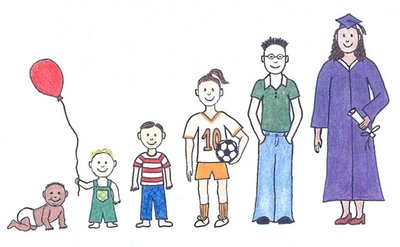
As the summer approaches, opportunities arise to reconnect with children who’ve been living away from home — many for the first time. Although it’s reasonable to expect it to be a happy experience, it can be full of challenges as well.
Dr. Gail Saltz, a psychiatrist with New York Presbyterian Hospital, puts it into a nutshell: “On the one hand, you are looking forward to seeing your child…. You expect [him or her] to be the same person they were when they left to go off to school. You expect them to step back into the role they had before … doing household chores and following the rules of the family. [But] your college kid just wants to come home and sleep, hang out with old and new friends, stay out all night and generally do whatever they’ve been doing at school.”
If this sounds familiar, the first thing you have to do is get rid of the “shoulds.” For example, “He should spend more time with me. After all, I pay his tuition!” Not so fast. You chose to have this child, and you chose to send him to college because you see it as part of your responsibility for getting him launched into society. That’s fine, but you’re not entitled to attach strings to this bargain, because he or she never made a bargain in the first place.
Does this mean he or she has a blank check to act irresponsibly on your nickel? No. But what we’re talking about is your feeling that because you’ve done all these things for your child that you are entitled to be his special friend. Not so. Most young people in this situation are sensitive to being treated as young children, or even as teenagers. They want to be grown ups. They’ve been in a largely unstructured environment for the last few months. They don’t want curfews. They don’t want to be constantly questioned or nagged. This is all natural.
Dr. Saltz encourages an “adult-to-adult relationship.” When your child returns for the summer or for the holidays, wait a week or two and see what boundaries and guidelines he or she has set for him- or herself. If your child is flourishing in college, then this indicates maturity and self-responsibility. Don’t insult your young adult by treating him as a child if he has, in fact, been functioning as a competent member of a college community.
Some discussion about boundaries will be inevitable, but don’t say “You’re in my house, and you’re going to live by my rules.” If you’ve figured out how to enforce rules against a nineteen-year-old’s will, then my hat is off to you. But I suggest simply treating them as you would a fellow adult. Say something like, “I realize you live on your own during the school year and you don’t have to answer to me. But let’s be realistic: If it’s 2 a.m. and I haven’t heard from you, I’m going to worry. That’s stressful for me. I have some suggestions on how to better stay in touch. Can I run them by you? I’m open to your ideas as well.” A little respect can go a long way.
You’re still the parent here. You’re taking the lead and you’re not really offering a choice. But you’re not setting rules from “on high” either. The same adult-to-adult approach applies to other issues, such as the car. You wouldn’t allow anybody else to use your car indiscriminately, so why would you allow a nineteen year-old to do so? Set common-sense limits and constraints, because those are part of life for everyone. The key is simply how you communicate them.
The issue here is attitude, and whether you view him or her as a child or an adult. I can guarantee that your young adult will know the answer. And, by your attitude, you can make sure it’s the answer you want.
Follow Dr. Hurd on Facebook. Search under “Michael Hurd” (Rehoboth Beach DE). Get up-to-the-minute postings, recommended articles and links, and engage in back-and-forth discussion with Dr. Hurd on topics of interest. Also follow Dr. Hurd on Twitter at @MichaelJHurd1, and see “Michael Hurd” on MeWe.
